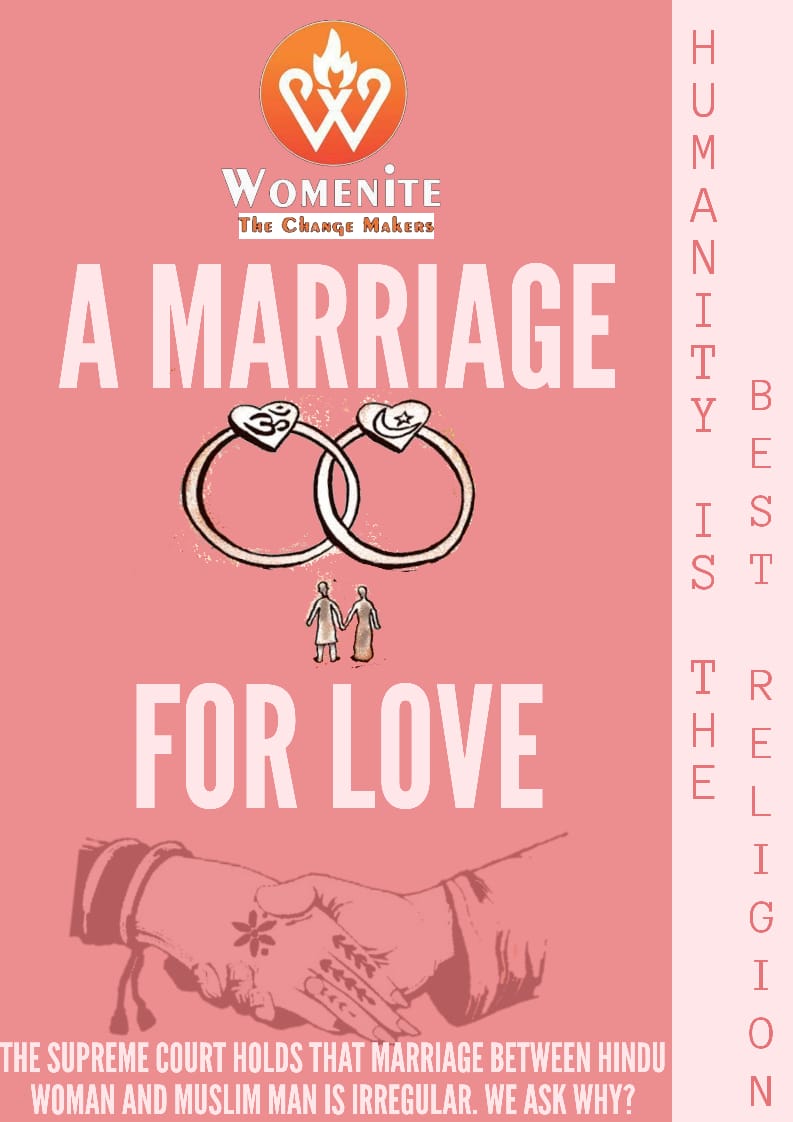The country recently observed it’s 70th Republic Day, which goes on to show that we, as a nation, have undoubtedly made remarkable progress, from where we stood back then to where we stand today. If one is to walk down the memory lanes of the times when the constitution was being drafted or when the 42nd Constitutional amendment was passed, which lead to adding the word ‘secular’ to the preamble of our Constitution. The amendment besides making the idea of the world’s largest democracy progressive, also instilled a feeling of belongingness in every individual, irrespective of his/her religious beliefs. In collorary, Article 25 and Article 26 of the Indian Constitution provide each individual with protection to practice their religion, subject to public order, health and morality. In a recent judgment of the Supreme Court, a marriage between a Hindu woman and a Muslim man was declared neither a valid (sahih) nor avoid (batil) marriage, but merely an irregular (fasid) marriage. A void marriage is one which is unlawful in itself, the prohibition against such a marriage being perpetual and absolute. An invalid marriage (fasid marriage) is described as one which is not unlawful in itself, but unlawful “for something else”, as here the prohibition is temporary or relative, or when the invalidity arises from an accidental circumstance such as the absence of a witness.

Design credits: Ruchi (Team Womenite)
The court relying upon the available literature and various interpretations available on muslim law, stated that as per the Muslim belief, marriage of a Muslim man with an idolater or fireworshipper (which includes worship of physical images/statues through offering of flowers, adornment, etc.,) is merely an irregular (fasid) marriage. The legal effect of a fasid marriage is that in the case of consummation, though the wife is entitled to get dower, she is not entitled to inherit the properties of the husband. But the child born in that marriage is legitimate just like in the case of a valid marriage and is entitled to inherit the property of the father. The Court also laid emphasis on Ameer Ali’s proposition that the polytheistic woman may at any time adopt Islam, which would validate the marriage, thus it was safe to assume that the offspring was legitimate and thus entitled to inheritance. Concludingly, I would just like to add that it was not long ago that we saw Hadiya, trying to get her marriage validated, not only by the courts but also by the society and her parents. Sheer hypocrisy can be seen in the mindsets of people when they say that the institution of marriage is so important that we can’t criminalise marital rape, as it would be an attack on the institution of marriage. Are we really talking about secularism, where people of two different faiths can’t have a valid marriage without conversion of religion of either of the spouses, are we really talking about institution of marriage, when a woman (of a different religion) can’t have the same rights as that of a woman who practices similar religion. Why can we not openly celebrate inter-faith marriages and get rid of the stigmatisation? Why do we have to create a barrier between what is valid and what is not? Why can we not accept people who get married for all the right reasons- love?
Content credits: Racheeta

